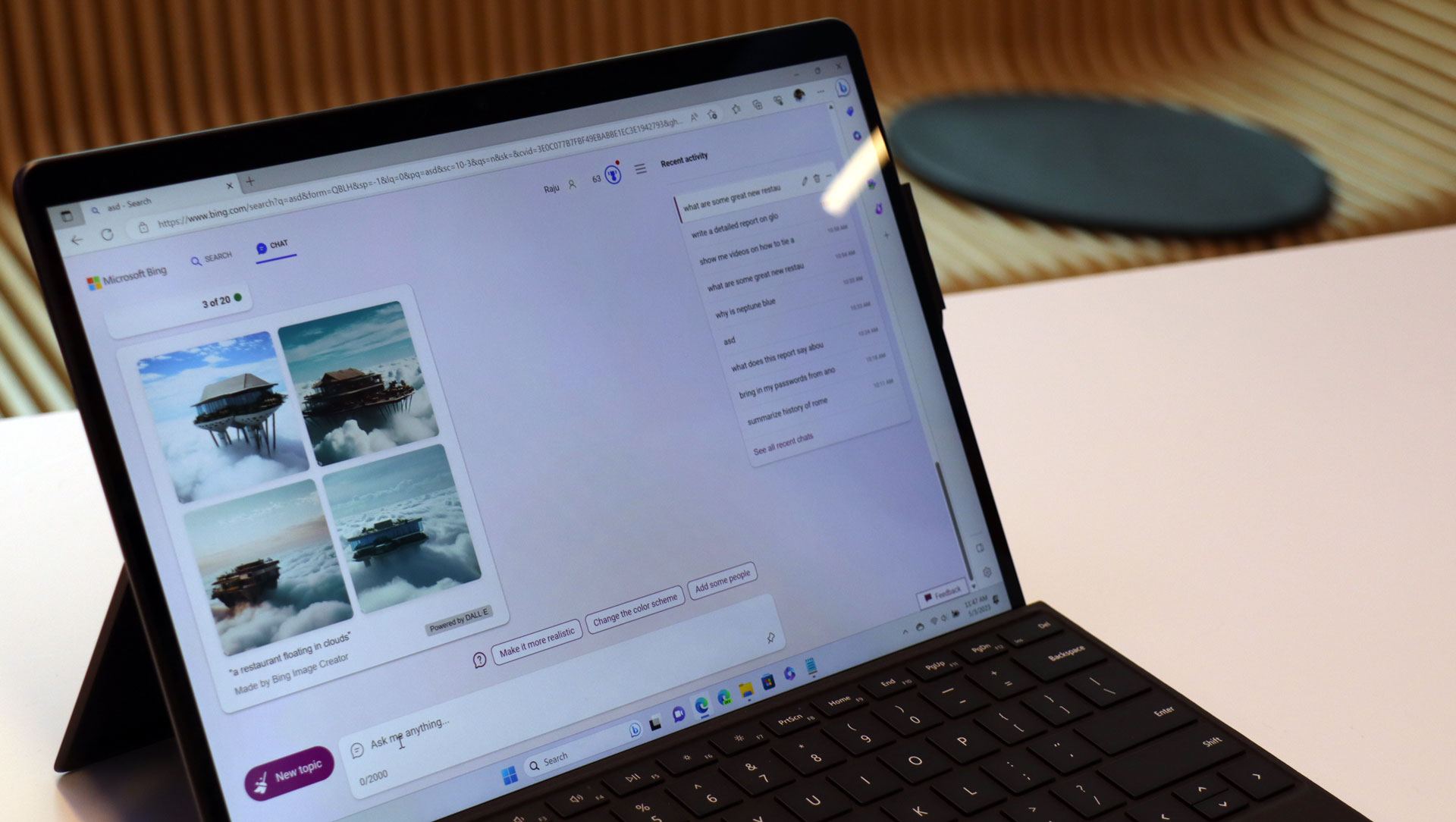Microsoft’s Copilot chatbot will get 6 big upgrades soon – including ChatGPT’s new brain
GPT-4 Turbo is coming soon (it’s currently in testing)

Microsoft has announced that Copilot – the AI chatbot formerly known as Bing Chat – is soon to get half a dozen impressive upgrades.
This batch of improvements should make the Copilot chatbot considerably more powerful in numerous respects (outside of, and inside of Windows 11).
So, first off, let’s break down the upgrades themselves (listed in a Microsoft blog post) before getting into a discussion of what difference they’re likely to make.
Firstly, and most importantly, Copilot is getting a new brain, or we should say an upgraded brain in the form of GPT-4 Turbo. That’s the latest model of GPT from OpenAI which makes various advances in terms of being generally better and more accurate.
Another beefy upgrade is an updated engine for Dall-E 3, the chatbot’s image creation feature, which produces higher quality results that are more closely aligned with what’s requested by the user. This is actually in Copilot right now.
Thirdly, Microsoft promises that Copilot will do better with image searches, returning better results when you sling a picture at the AI in order to learn more about it.
Another addition is Deep Search which uses GPT-4 to “deliver optimized search results for complex topics” as Microsoft puts it. What this means is that if you have a query for Copilot, it can produce a more in-depth search request to produce better results. Furthermore, if the terms of your query are vague and could potentially relate to multiple topics, Deep Search will follow up on what those topics might be and offer suggestions to allow you to refine the query.
Get daily insight, inspiration and deals in your inbox
Sign up for breaking news, reviews, opinion, top tech deals, and more.
The fifth upgrade Microsoft has planned is Code Interpreter, which as the name suggests will help perform complex tasks including coding, data analysis and so forth. That’s not something the average user will benefit from, but there are those who will, of course.
Finally, Copilot in Microsoft’s Edge browser has a rewrite feature (for inline text composition) coming soon. This allows you to select text on a website and get the AI to rewrite it for you.
Analysis: Something for Google to worry about

There are some really useful changes inbound here. Getting GPT-4 Turbo is an upgrade (from GPT-4) that a lot of Copilot users have been clamoring for, and Microsoft tells us that it’s now being tested with select users. (We previously heard it still had a few kinks to iron out, so presumably that’s what’s currently going on).
GPT-4 Turbo will be rolling out in the “coming weeks” so it should be here soon enough, with any luck, and you’ll be able to see the difference it makes for you in terms of a greater level of accuracy for the chatbot when responding to your queries.
It’s great to see Dall-E 3 getting an upgrade, too, as it’s already an excellent image creation engine, frankly. (Recall the rush to use the feature when it was first launched, due to the impressive results being shared online).
The search query improvements, both the Deep Search capabilities and refined image searching, will also combine with the above upgrades to make Copilot a whole lot better across multiple fronts. (Although we do worry somewhat about the potential for abuse with that inline rewrite feature for Edge).
All of this forward momentum for Copilot comes as we just heard news of Google delaying its advances on the AI front, pushing some major launches back to the start of 2024. Microsoft isn’t hanging around when it comes to Copilot, that’s for sure, and Google has to balance keeping up, without pushing so hard that mistakes are made.
You might also like ...
Darren is a freelancer writing news and features for TechRadar (and occasionally T3) across a broad range of computing topics including CPUs, GPUs, various other hardware, VPNs, antivirus and more. He has written about tech for the best part of three decades, and writes books in his spare time (his debut novel - 'I Know What You Did Last Supper' - was published by Hachette UK in 2013).